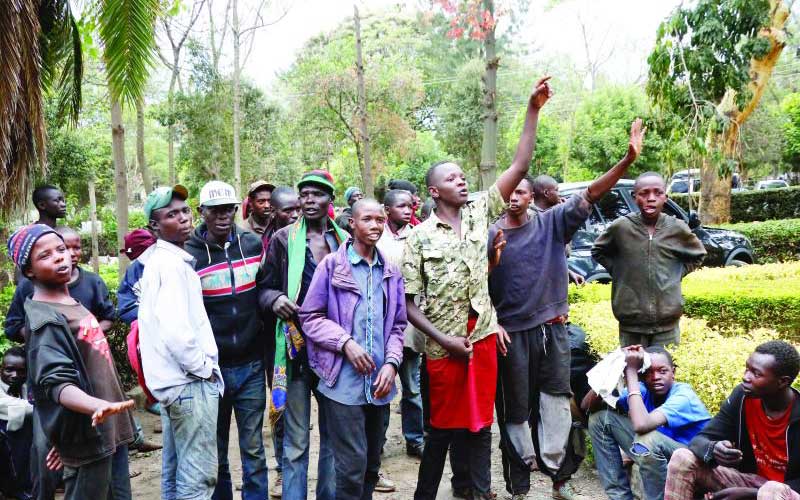×
The Standard e-Paper
Smart Minds Choose Us

Some of the 41 street children who were dumped by Nakuru County enforcement officers at Sawich area in Chemususu Forest on the Eldama Ravine-Torongo road in Baringo County on February 7, 2019. [Kipsang Joseph, Standard]
Senate Standing Committee on Labour and Social Welfare has put Nakuru County on the spot over alleged rounding up and dumping of street families into a forest in Baringo County.